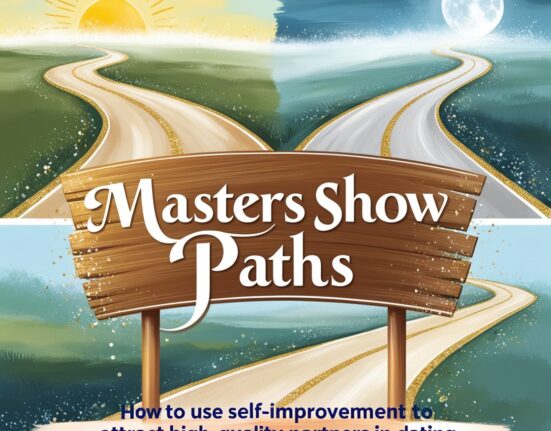When it comes to building a strong and lasting relationship, we often focus on finding the “right” partner—someone who shares our values, dreams, and aspirations. But an often overlooked aspect of a successful relationship is self-improvement. While finding the right person is important, becoming the right person is equally crucial. The journey of self-improvement is not just about bettering yourself for your own sake; it’s about creating a solid foundation on which a healthy, thriving relationship can grow.
The Connection Between Self-Improvement and Relationship Strength
At the heart of any strong relationship is a deep sense of mutual respect, trust, and understanding. These qualities don’t just happen overnight—they are cultivated over time through personal growth and self-awareness. When you invest in your own self-improvement, you bring a healthier, more balanced version of yourself to the relationship. This doesn’t mean you need to be perfect, but rather that you’re committed to ongoing growth.
Self-improvement helps you better understand your own needs, desires, and boundaries. This self-awareness enables you to communicate more effectively with your partner, leading to fewer misunderstandings and more harmonious interactions. Moreover, when both partners are committed to self-improvement, it creates a dynamic where each person supports and encourages the other’s growth, leading to a relationship that is constantly evolving and deepening.
Self-Awareness: The Cornerstone of Self-Improvement
Self-awareness is the first step in the journey of self-improvement. It involves taking a deep, honest look at yourself—your strengths, weaknesses, habits, and patterns. By understanding yourself better, you can identify areas that need growth and improvement. Are there unresolved issues from your past that affect how you relate to others? Do you have communication habits that might be harmful to your relationship? Are there personal goals you’ve neglected that could bring more fulfillment to your life?
Being aware of these aspects allows you to address them proactively, rather than letting them become stumbling blocks in your relationship. For example, if you recognize that you have a tendency to avoid conflict, you can work on developing healthier ways to address disagreements. If you realize that you’ve been neglecting your own hobbies and interests, you can make a conscious effort to reintegrate them into your life, which in turn can make you a more well-rounded and fulfilled partner.
Emotional Intelligence: Enhancing Connection Through Empathy
Emotional intelligence (EQ) is another critical component of self-improvement that plays a significant role in the strength of your relationship. EQ involves the ability to recognize, understand, and manage your own emotions, as well as the emotions of others. High emotional intelligence leads to better communication, greater empathy, and stronger emotional bonds.
By improving your emotional intelligence, you become more attuned to your partner’s feelings and needs. This doesn’t mean you have to be a mind reader, but it does mean you can better navigate the emotional landscape of your relationship. For example, instead of reacting defensively during an argument, someone with high EQ might pause to understand their partner’s perspective, leading to a more constructive and compassionate dialogue.
Personal Growth as a Joint Journey
While self-improvement is inherently personal, it doesn’t have to be a solo endeavor. In fact, one of the most beautiful aspects of a relationship is the opportunity to grow together. When both partners are committed to personal growth, it fosters a supportive environment where each person feels encouraged to pursue their own goals and aspirations.
This mutual commitment to growth can take many forms. It might involve setting individual and joint goals, such as improving communication skills, pursuing new hobbies, or supporting each other’s career ambitions. It could also mean seeking out new experiences together, such as traveling, taking a class, or simply trying new activities. These shared experiences not only strengthen your bond but also add depth and richness to your relationship.
Building Resilience Through Self-Improvement
Life is full of challenges, and relationships are no exception. However, the stronger you are as an individual, the better equipped you’ll be to navigate these challenges together. Self-improvement builds resilience—the ability to bounce back from setbacks and face difficulties with a positive mindset.
Resilience doesn’t mean you won’t face problems; rather, it means you’ll be better prepared to handle them when they arise. For example, if you’ve worked on improving your stress management techniques, you’re less likely to let external pressures negatively impact your relationship. If you’ve developed strong communication skills, you’ll be more adept at resolving conflicts in a healthy and productive way.
When both partners are resilient, the relationship itself becomes stronger, capable of weathering life’s storms without falling apart.
The Role of Self-Love in Relationships
Self-improvement isn’t just about fixing flaws or achieving goals; it’s also about cultivating self-love. How you treat yourself often sets the tone for how you allow others to treat you. When you love and respect yourself, you’re more likely to demand the same from your partner. This doesn’t mean you become arrogant or self-centered, but rather that you recognize your own worth and refuse to settle for less.
Self-love also helps you set healthy boundaries in your relationship. It allows you to say no when something doesn’t feel right and to prioritize your own well-being. In turn, this creates a more balanced relationship where both partners feel valued and respected.
Real-Life Stories: The Impact of Self-Improvement on Relationships
Consider the story of Sarah and Tom. Sarah realized early in their relationship that she had a tendency to shut down emotionally during conflicts, which stemmed from unresolved issues in her past. Instead of letting this pattern continue, she sought therapy to work on her emotional health. Tom, on the other hand, recognized that his workaholic tendencies were causing strain on their relationship. He made a conscious effort to create a better work-life balance, allowing more quality time with Sarah.
Through their individual journeys of self-improvement, Sarah and Tom not only became better partners but also created a relationship that was far more resilient and fulfilling. They supported each other’s growth, celebrated each other’s successes, and built a strong foundation based on mutual respect and love.
Conclusion: The Ongoing Journey of Self-Improvement
Self-improvement is not a destination; it’s an ongoing journey. It requires commitment, effort, and sometimes a willingness to face uncomfortable truths about yourself. But the rewards are immense—not only for you as an individual but for your relationship as a whole.
When you invest in yourself, you’re also investing in your relationship. You bring more to the table—more self-awareness, more emotional intelligence, more resilience, and more love. And when both partners are committed to their own growth and to supporting each other’s growth, they create a relationship that is not only strong but also dynamic, evolving, and deeply fulfilling.
How has self-improvement played a role in your relationship? What steps are you taking to grow as an individual? Share your experiences and insights in the comments below, and let’s inspire each other to build stronger, more resilient relationships through the power of personal growth.



















